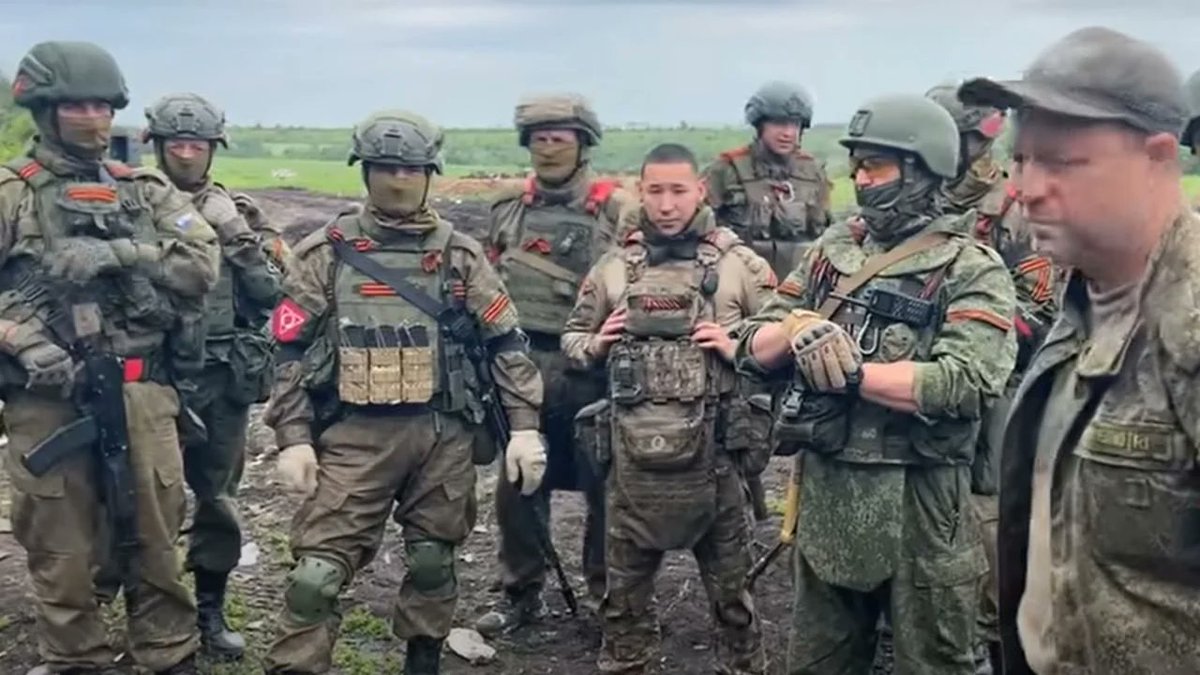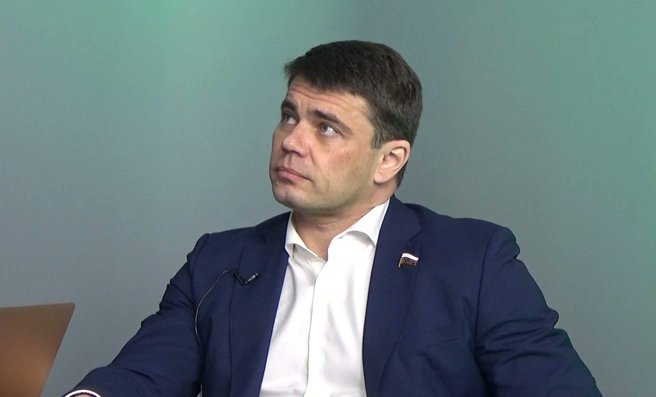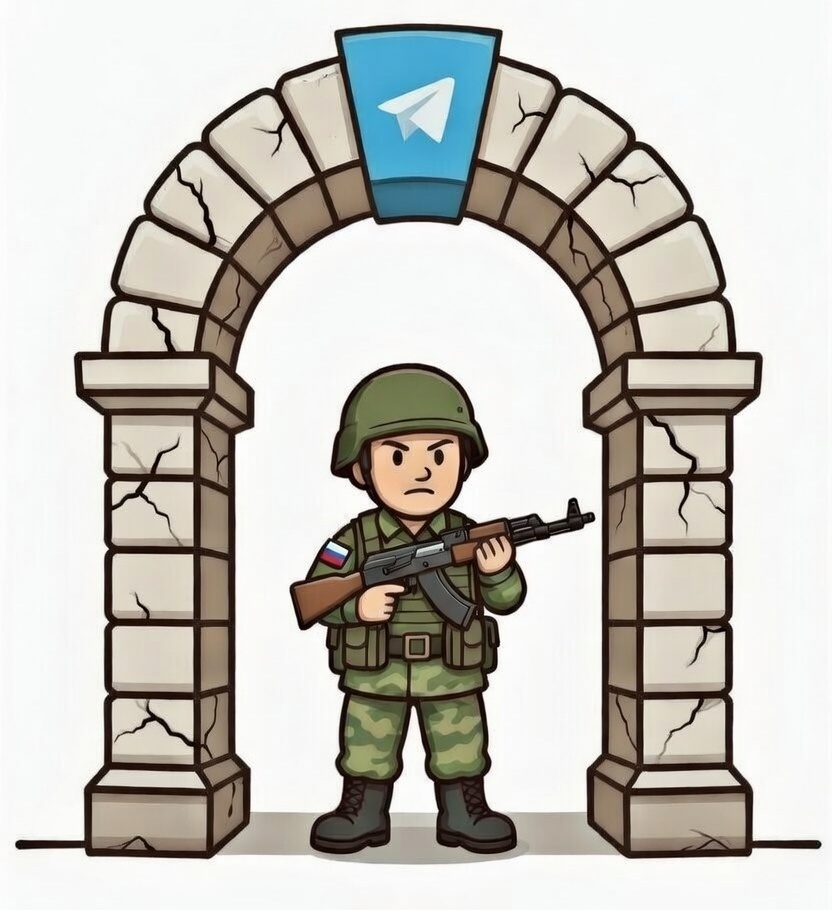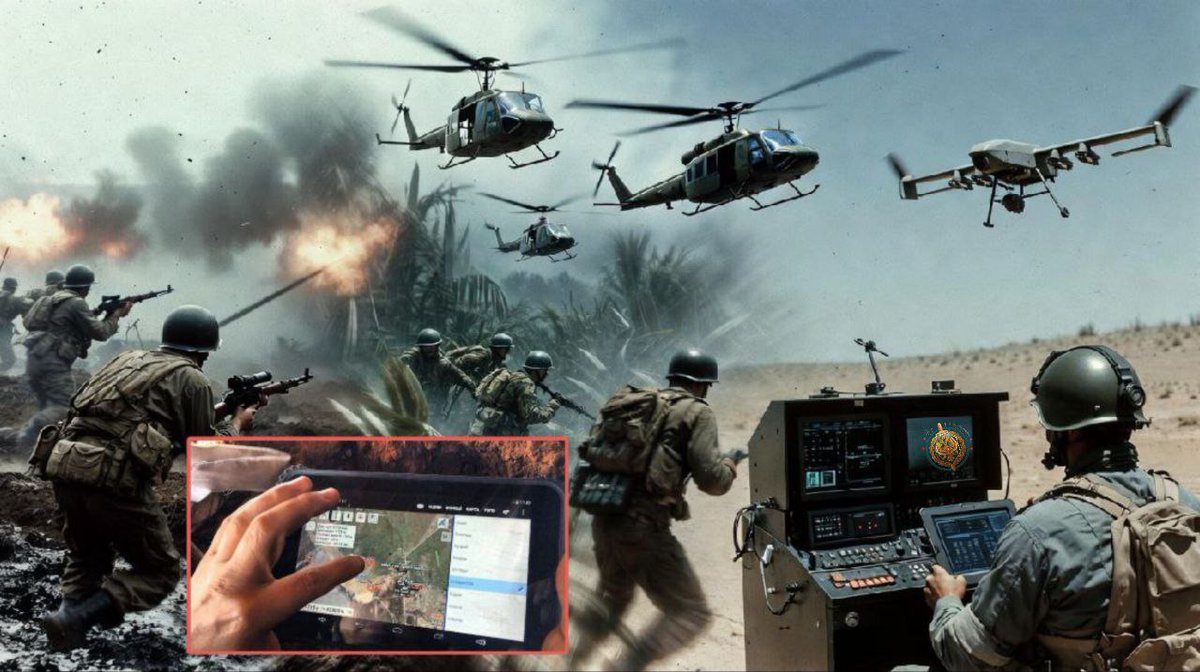1/ Untrained mobilised Russian soldiers are being held prisoner in a basement in Luhansk oblast after refusing to go back to the front line. Following a bloody defeat near Lyman, they found that their own side had stolen all their personal equipment. Thread follows. ⬇️ 

2/ The independent Russia media collective ASTRA reports that mobilised men from the Lipetsk and Bryansk regions in Russia are being held in captivity by their own commanders after they were forced to retreat from near Lyman with "many dead and wounded".
3/ To make matters worse, relatives say that some men were mobilised illegally, without signing or even seeing their contracts. Some had deferments exempting them from mobilisation, but these were ignored. As one said, "I'm going there like a pig to be killed, I won't go".
4/ According to relatives, the mobilised men were given only fake training – posing with weapons for photo reports (see thread below for more on this practice) – before being "thrown into the front line" near Lyman.
https://twitter.com/ChrisO_wiki/status/1570169288849326082
5/ The mobilised men say they are from the 3rd Battalion of the 488th Guards Motorised Rifle Regiment. One of them gave ASTRA a detailed account of what happened.
6/ "We were told: go ahead, there's a roadblock and our men are standing there. In fact, there was no one in front of us. It was near the village of Tors'ke [east of Lyman]. In the morning [the Ukrainians] started to fire at us with mortars. They worked directly on us. 

7/ At first we tried to move back to our line – we were surrounded again. Crawled further. It seemed to me, we were crawling for two kilometres with all ammunition, machine guns. Then we heard from behind: "are you falling apart? Get up and go back."
8/ We retreat on foot, a tank drives up and picks us up. On the same tank we arrived in Kreminna. There the commander meets us and asks why we left our positions. We said it was the colonel's order. The colonel comes down from the tank and says: "I just told them to move back".
9/ In short, he excused himself. If he had told us to move back, he would not have jumped on the tank himself and would not have gone further with us to the headquarters. And the commander said: "You have 5 minutes to get ready and return to the same place.
10/ The BMP went back to that spot to pick up the 300s [wounded]. And when he came back, he said: "there's nothing to do there, there's still shelling going on, you can't even drive up. The battalion commander told us to go back anyway." And about 27 of us got out and refused.
11/ According to a relative, when the mobilised men returned to their unit they "found absolutely all their personal belongings missing."
12/ "Then they were ordered to go to the front line again, but realizing that they were being sent there without a clear task and without the necessary kit to carry out unclear tasks, they refused.
13/ After which [the commanders] took away the men's weapons and put them in a basement that was completely unsuitable for accomodating personnel".
The mobiks' commanders disowned them and left them in the custody of the military commandant in Rubizhne.
The mobiks' commanders disowned them and left them in the custody of the military commandant in Rubizhne.
14/ "All those who came were put in a cell, also unfit for human habitation. After 10 days in the cell, prosecutors came and gave an ultimatum of two options: to go to the front line or face a criminal punishment of 10 years in strict regime".
15/ (This means they would face more restrictions than regular prisoners and would be made to live in overcrowded locked cells with 20-50 other prisoners).
16/ According to another relative, the men were subsequently moved to a former prison in the Perevalsky district of Luhansk. "There are 20 of them, the refuseniks. They did not desert and did not leave their positions.
17/ But they refused to return to them again, [after being ordered to retreat] under mortar fire, without command and without the support of heavy equipment. The commanders abandoned them."
18/ The men tell their story in a couple of secretly recorded videos made in their basement-prison, where they complain about the awful living conditions that include using a bucket as a toilet.
19/
20/ According to ASTRA, the commandant called the mother of one of the men to get her to tell her son to go back to the front line. She refused, prompting the commandant to tell her that she was a "traitor to the Motherland and you need to live in the Kyiv region." /end
• • •
Missing some Tweet in this thread? You can try to
force a refresh








